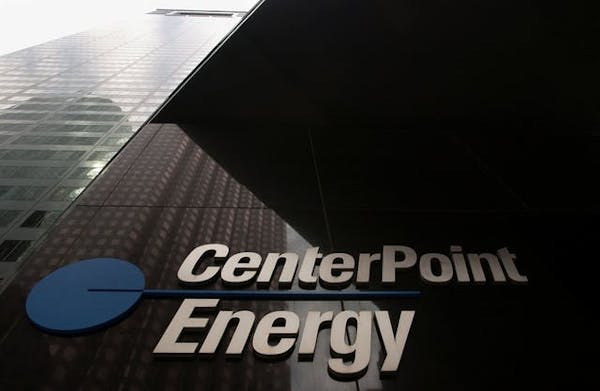Minnesota utility regulators Thursday faulted the state's gas providers for their response to a February 2021 storm, prohibiting them from passing down nearly $60 million in costs to consumers.
The decision still means about $600 million of wholesale gas costs can be passed onto consumers, who already have started to pay those amounts through a special surcharge.
The decision by the Public Utilities Commission (PUC) to reject about 9% of the costs fell far short of a recommendation by the Minnesota Department of Commerce, which represents ratepayers, and utility watchdog groups.
Still, the PUC's decision was considerably more beneficial to consumers than a ruling earlier this year by two administrative law judges. They found the utilities entirely justified in collecting the full $660 million bill from ratepayers.
"We wish the commission would have gone further — that obviously would have been better for consumers — but at the at the end of the day, I am really pleased with how the PUC acted," said Brian Edstrom, senior regulatory advocate for the Citizens Utility Board of Minnesota, a ratepayer advocacy group.
Wholesale gas prices in Minnesota and many other states soared in February 2021 when a historic storm hit Texas and other natural gas-producing states. Temperatures plunged, gas field equipment froze up and supply cratered just as demand climbed.
Many Minnesotans will pony up 50% more than they pay annually for their heating bills just to cover the storm's gas costs.
Minnesota, like many states, allows utilities to directly pass wholesale gas price swings to ratepayers. But watchdogs have wondered if, because of that rule, utilities did not take more evasive actions to manage storm-related costs.
"If utilities' own resources were at risk, I think they would have made different decisions," PUC Commissioner Joe Sullivan said at Thursday's meeting.
Last year, the PUC allowed four investor-owned utilities to begin recovering the costs but also opened up an investigation that culminated in Thursday's ruling.
The commission rejected $35.7 million of the $409 million CenterPoint Energy incurred during the storm; $19 million of Xcel Energy's $179 million tab; and $845,000 of $8.8 million in costs for Great Plains Natural Gas Co., a small utility in western Minnesota.
MERC, an arm of Milwaukee-based WEC Energy Group, signed an 11th hour settlement agreement Wednesday that would disallow $3 million of its $65 million in extraordinary gas costs from the storm.
The Commerce Department, the Minnesota Attorney General's Office and the Citizens Utility Board signed the settlement. MERC did not admit to any "imprudence or unreasonable action" in connection with the February 2021 storm.
The utilities' prudency during the storm was at the heart of the PUC's investigation.
The gas companies said they were acting prudently — given the information they had at the time of the storm — and followed good utility practices.
The AG's office, the Commerce Department and the Citizens Utility Board contend the utilities did not act prudently from Feb. 13 to Feb. 17 — and that their mismanagement caused them to rely too much on an overheated spot gas market.
They said the utilities didn't withdraw enough gas from storage depots, miscalculated gas supply forecasts and in some cases did not curtail gas to business customers when they should have.
Also, CenterPoint and Xcel failed to adequately use backup gas reserves known as peaking plants, they said.
For all those reasons, the Department of Commerce had recommended that the PUC reject up to $122 million of Xcel's storm-related gas costs; $45 million for CenterPoint; $10.7 million for MERC; and $845,000 for Great Plains.
The PUC fully followed Commerce's recommendations only for Great Plains. The PUC disallowed $37.7 million of CenterPoint's costs and about $19 million of Xcel's. All disallowance votes were 4-1, with Commissioner Valerie Means voting against.
Means agreed with the administrative law judges' report to allow the utilities to recover the full $660 million.
"In my opinion, the ALJs' report is comprehensive through and through," Means said. The record "is replete with evidence to support their recommendations."
The PUC rejected about $12 million of CenterPoint's costs for not maximizing the amount of gas it had in storage depots. It disallowed another $12.4 million saying that CenterPoint should have used its peaking plant more during the gas crisis.
Peaking plants provide gas reserves during emergencies, though CenterPoint and Xcel contend that means only when gas supplies are short, not expensive. The PUC disagreed, also rejecting $14.7 million in Xcel's costs for failing to use its peaking plant.
Xcel's largest peaking plant in Inver Grove Heights was idled six weeks before the storm after it malfunctioned and twice leaked gas. A cautious Xcel then closed two smaller peaking plants.
Xcel's "peaking plants should have been available, and had they been available, they should have been used," said PUC Commissioner Matt Schuerger.
The Commerce Department had recommended that the PUC disallow $65 million in Xcel's costs due to the peaking plant outage. The PUC may still effectively penalize Xcel further for the disabled peaking plants in the company's current rate case.

Rural Minnesota school bus driver is a teacher as much as chauffeur

Twin Cities thrift stores are having a moment. Are tariffs pushing people to shop secondhand?
Minnesota's med spa industry rises in popularity — and with little regulation

Ramstad: Readers say Walmart won't be paying the ultimate price of Trump's tariffs

